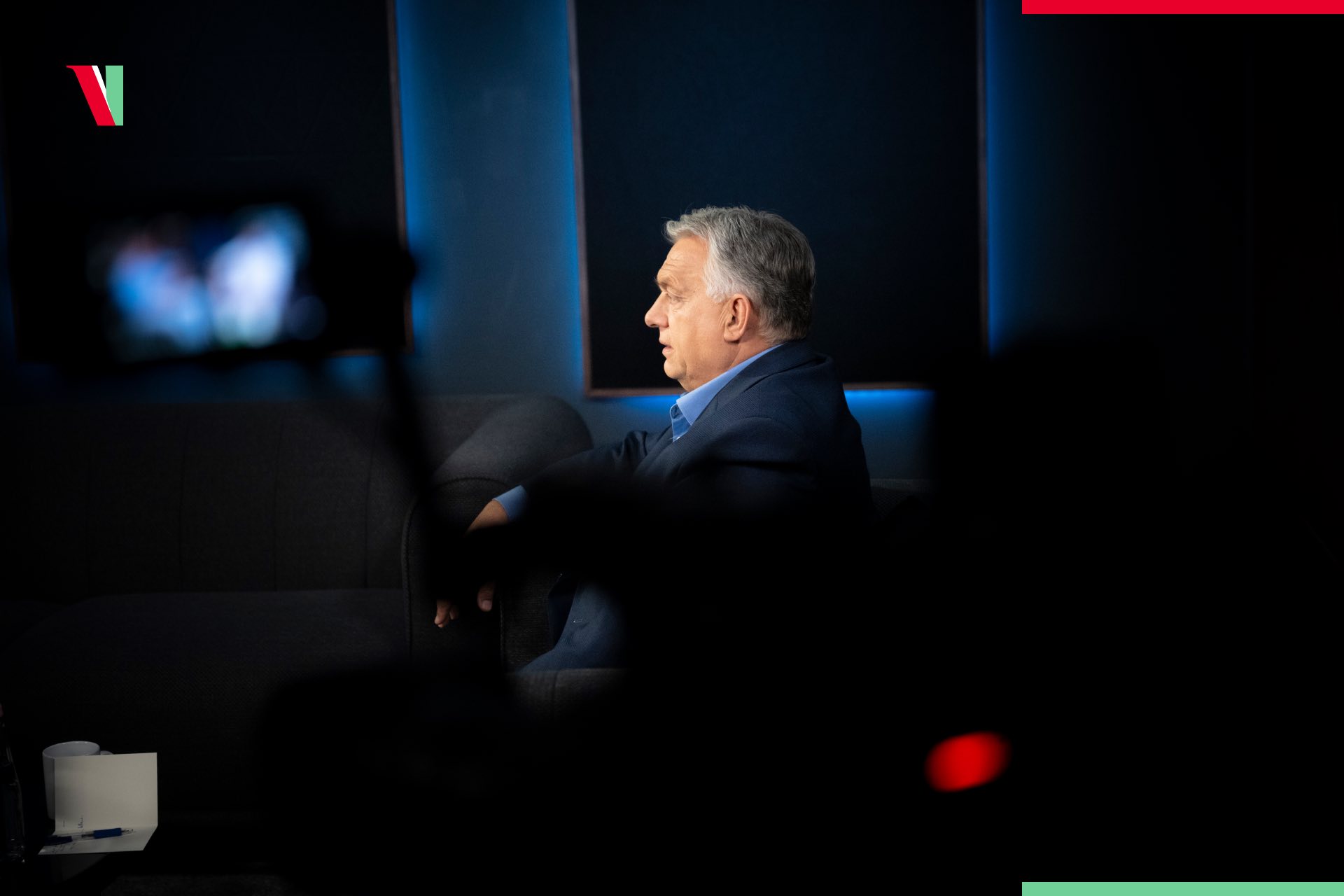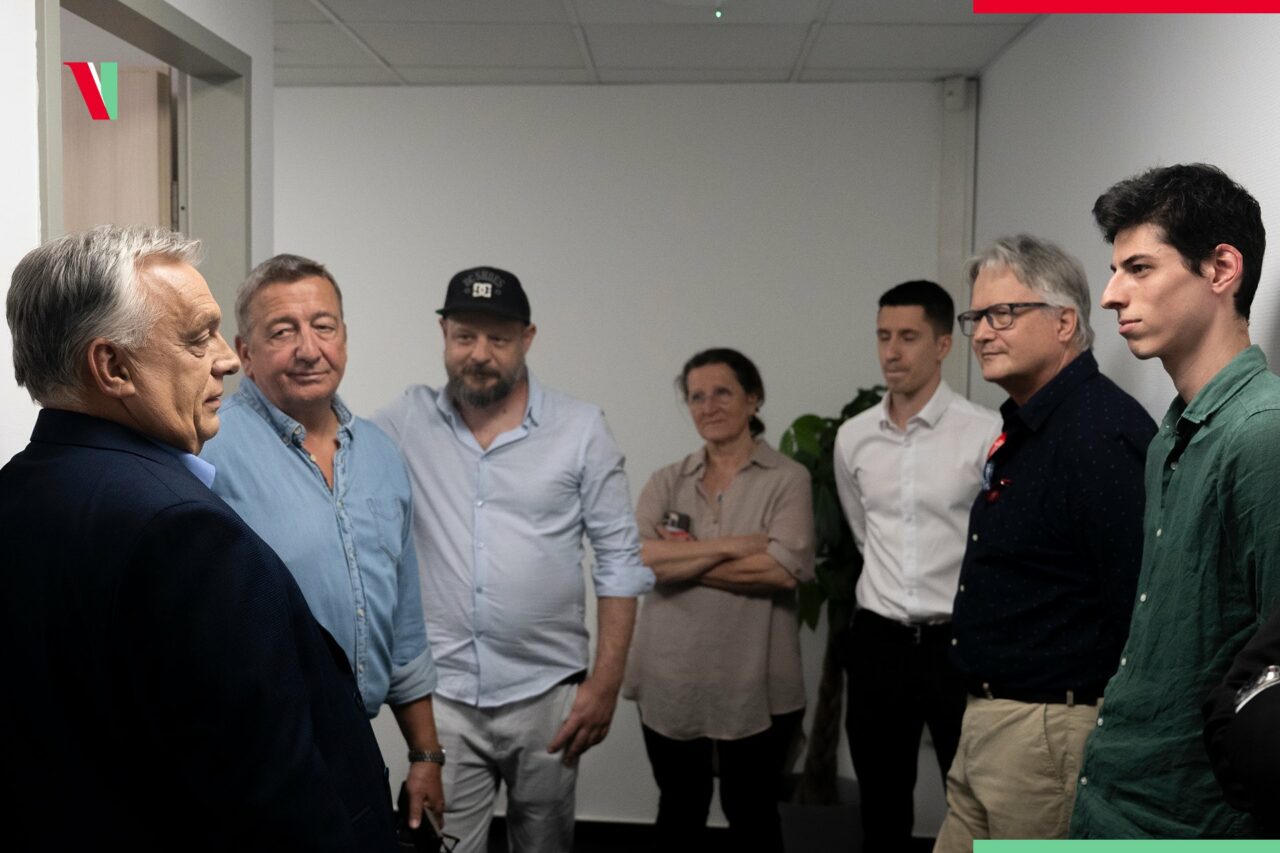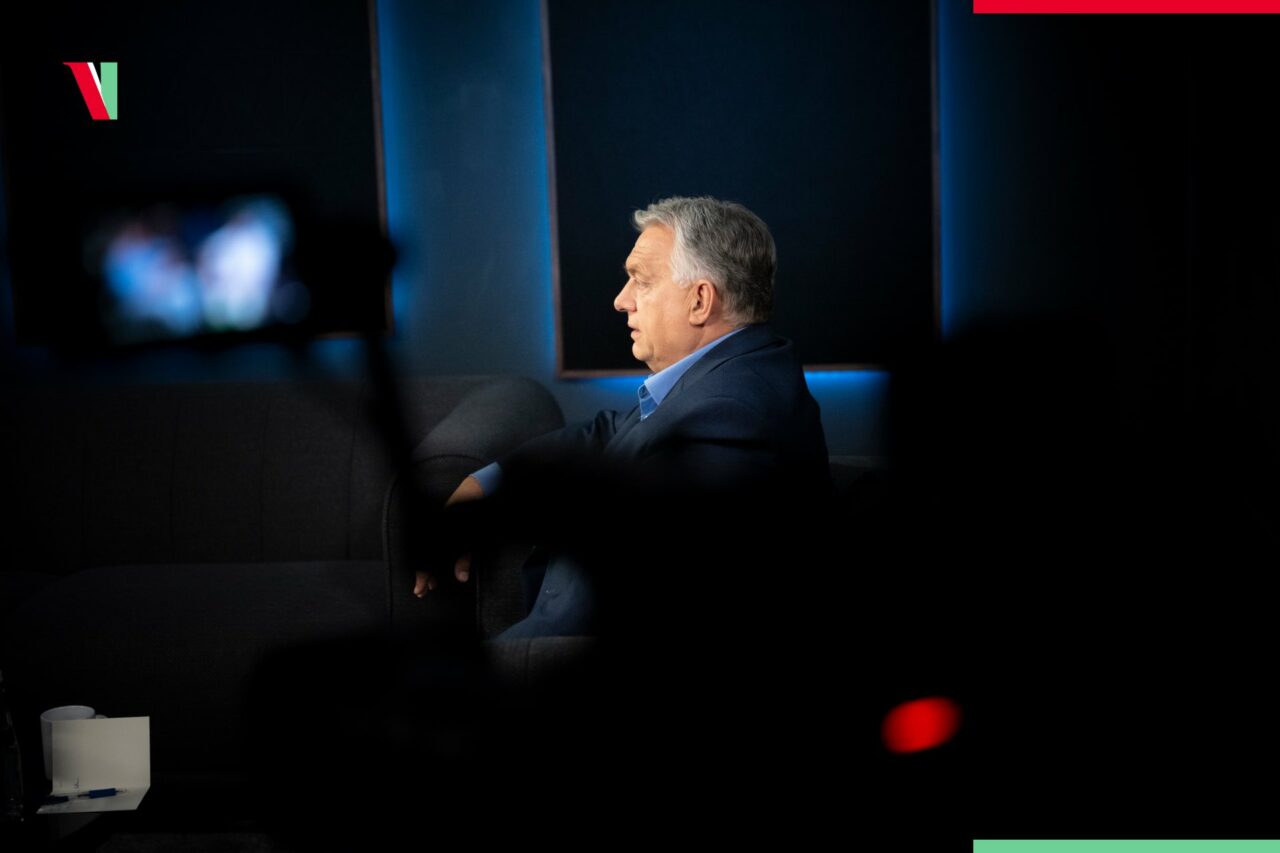PM Orbán confident about winning again, says fight will continue against Brussels, recuits to his “Fight Club” – VIDEO

Prime Minister Viktor Orbán, in an interview with the daily Magyar Nemzet’s YouTube channel on Monday, said he felt “at ease” heading into next year’s election, adding that the ruling parties had delivered on more than 90% of the promises they made in 2022.
Orbán calls challenger Péter Magyar and his Tisza party an online movement
Talking with publicist Zsolt Bayer and pestisracok.hu‘s Áron Ambrózy, Orbán said the government was fulfilling its commitment to keep Hungary out of the war in Ukraine and to keep migrants out of the country, as well as banning so-called “gender” issues from schools, doubling tax relief for employees with children, “and the biggest tax reduction programme in Europe”. “I don’t think any kind of online movement can trump a track record,” Orbán said.

He said that in Western politics liberals were “interested in intentions”, but intentions alone were only good for a single election “because afterwards the only thing anyone cares about is results”. “We have always had an organised political community that is called a party,” he said, adding that this is accompanied by the “Fight Club” online political movement. The opposition Tisza Party, he argued, only had an online movement.
Orbán shared a post on his Facebook page recruiting more “warriors” today morning: there are 7 conditions each volunteer must meet.
Facts will disappear
“We have a successful and large political community on an unprecedented scale … even by European standards,” he said. He said forces generally teamed up to thwart those in politics who tried to achieve “something good” and merely spoil “the game”. So his job, he added, was to double down and beat such forces. He added that it would eventually become clear whether “what we have today is the end of politics” or whether politicians who worked with “facts”, achieved “results” and took “responsibility” would win the day.
- PM Orbán: ‘I expect overwhelming election victory’
Orbán said “a way must be found to talk to people seriously”, otherwise “the facts will just disappear”, and the strongest argument for a ruling party was its performance, which he called “invincible” and “unbeatable”. The prime minister listed results such as one million more jobs than in 2010 and people owning 1.1-1.2 million more vehicles, the average intake of meat rising from 54kg to 68kg, with poorer people benefiting the most. He added that calm talk about the results would mean “this election cannot be lost”.

Orbán insists that a Hungarian recruit was beaten to death in Ukraine
Orbán said “you don’t get anywhere in a democracy” if complex topics are not explained “in a way that people understand”, but “frivolity and common sense are not synonymous”. Meanwhile, the prime minister said the European Union must take action in cases where the victim of a fatal beating is a citizen of an EU member state, and he urged Brussels to take action against forced conscription in Ukraine.
- With 500 programmes and PM Orbán’s keynote speech the 34th Bálványos Summer University and Festival in C Romania is ready to kick off
“You can’t make speeches about Ukraine’s suitability for European Union membership” just after someone was “buried after being beaten to death during forced conscription”, Orbán said in the discussion programme. The Hungarian government is helping the families of Hungarians who were regular conscripts or forced into military service, he added. “We’re also knocking on the door in Brussels,” he said, noting the government’s demand that it take action against the practice of forced conscription in Ukraine.
Referring to Brussels, he said “if Hungarians hold out, then we’ll manage to preserve our national sovereignty on the most important points”. Also public opinion in Europe would, he said, shift from the idea of a federalist Europe to one consisting of sovereign states.
Tisza, DK support imperial solution
Whereas the “Dobrevs and Tisza” support the EU’s “imperial solution” to migration, the majority of Europeans “oppose the migration pact”. Countries besides Hungary were also “rebelling one after another” against it, he added.
It was a similar case with “the gender issue”, he said, adding that “the same will happen with the issue of the war in Ukraine”.
Orbán said by “re-establishing” the Visegrád Group, which may be possible next year, could help to harness a change in European public sentiment, and “we can once again create a balance between imperial thinking and a Europe of nations.”
Asked whether “battering Brussels” was worth it, he said there was “no choice” as Hungary’s sovereignty and achievements over the past 15 years would be compromised.
Gender, migration, and war
Besides support for the war, gender propaganda and migration, Brussels also demanded scrapping state subsidies for household utilities and support for the pension system, as well as abolishing state rules that curb interest rates and retail prices, Orbán said.
More news concerning the ongoing war in Ukraine.
Around 2-3 million families “will be ruined in a matter of seconds” if this were allowed to happen, he said. “If we don’t want to go bankrupt, then this is the only thing worth undertaking,” he added.
Orbán said Ukraine’s EU accession would lead to a United States of Europe, as the country could only “exist as a nation” if it were held together by a “Brussels empire”. As well as bringing “many horrors” to the EU, Ukraine would put a full stop to the debate on the sovereignty of nations, he added.
Following a peace treaty or ceasefire, he said, it must be decided “whether Russia will participate in the European economy”. Decisions must be made about where imports of energy and raw materials come “and whether we participate in their economy”.
“We must also agree on limiting arms, because if … we have to spend 5 percent of the gross domestic product on weapons, we will die,” Orbán said.
Ukraine: strategic ally but not an EU member
Thereafter, Europe must conclude a strategic alliance with a Ukraine which is not an EU member, he said. “In other words, we’ll maintain our independence, and if something doesn’t work, we’ll modify the agreements with Ukraine accordingly,” he added.
So a multi-stage approach should be applied in the case of Ukraine, Orbán said, explaining that first a ceasefire and a peace agreement were required, followed by an economic and arms limitation treaty with Russia; and eventually a strategic agreement between Ukraine and the European Union.
Asked about his relationship with former German Chancellor Helmut Kohl, Orbán noted that it had remained “special” to the very end, “so much so that after the farewell service … only a few family members and myself were allowed to stand at the grave at the head of a small Hungarian delegation.”
Soros plan
Referring to the “Soros plan” to import one million migrants into Europe each year, he said liberals may dispute its existence, but the plan “was published in writing”. “Everyone can read it with their own eyes…”
Asked about whether he would “retire”, Orban said Fidesz was “special” because it was formed “on the eve of a historical cataclysm” in 1988 and had since become “the most successful political community in Europe”.
“I was there from the beginning,” he said, adding it would be “very difficult to imagine” the party without him. With a different leader, Fidesz and the national-Christian camp “would certainly be different, and it would still look good, even if it were different,” he added.
The future of the Hungarian right wing, Orbán said, depended “on the person”. “Of course, I will do what needs to be done, and even more…”
God, homeland, family
Fidesz’s strength lay in its roots and fighting ability, he said. Its energy, he added, was “nourished by the fact that the majority of the country loves its homeland, loves its family, and still, mysteriously, keeps a connection with God.”
God, the homeland, and the “family view of life” were central facets of Hungarian life, Orbán said. “The only question is how this can and should be formulated politically”.
“So succession is not as delicate an issue as the left presents it to be, the prime minister said. “The time for that will come, and when the time comes, we will direct it.”
Click to read more about Viktor Orbán and his family.
Here is the full interview:







